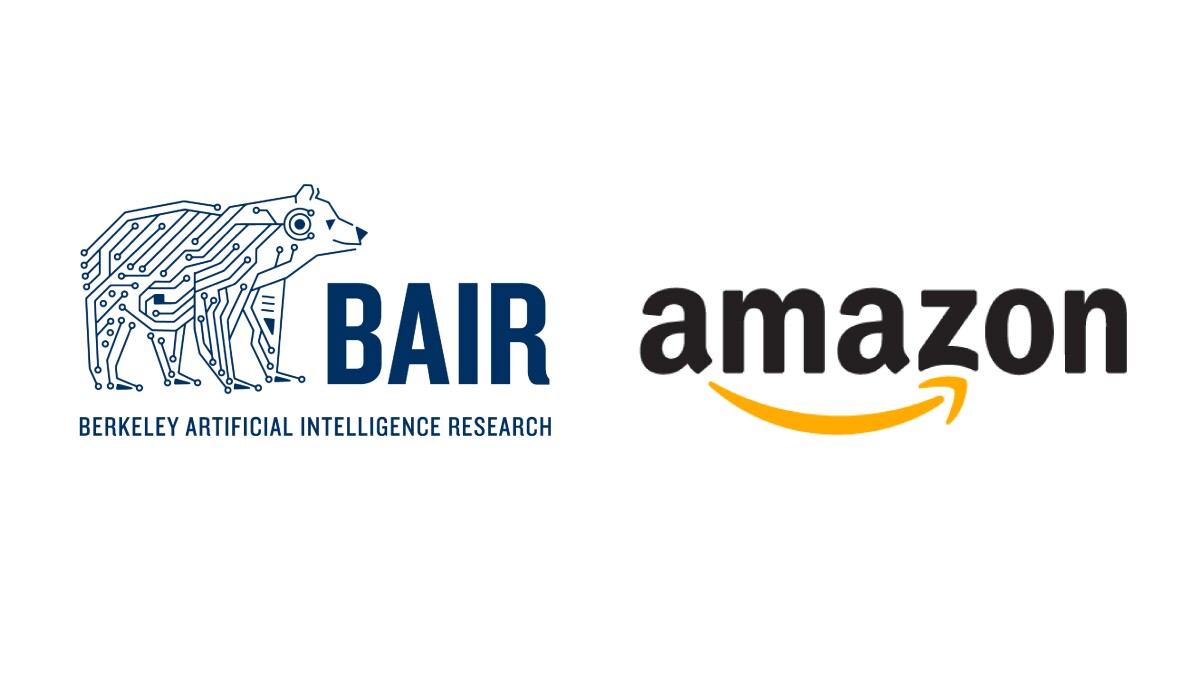In a keynote talk at the 2019 re:MARS Conference, Jeff Wilke, CEO of Amazon’s worldwide consumer business, talked about how the company was built by computer scientists and incredible coders, but increasingly “we’re being propelled forward by the work of pioneering AI scientists” – scientists who are shaping customer experiences in shopping, delivery, voice (Alexa), and many other areas.
Within the world of machine learning and AI, one of the premiere institutions of study and research is the University of California, Berkeley. Its impact on computer science has been profound, with groundbreaking work in theoretical as well as practical aspects of technology, including control theory, pattern recognition, neural networks, computer vision, and robotics. The school’s BAIR (Berkeley Artificial Intelligence Research) Lab brings together UC Berkeley researchers across the areas of machine learning, natural language processing, AI, and other topics.
For two years now, Amazon has been collaborating with UC Berkeley and BAIR on a wide range of research projects. This collaboration represents a win-win opportunity for both organizations, giving Amazon a chance to work with to some of the brightest computer scientists in academia, while providing UC Berkeley students an opportunity to tackle challenging, real-world problems.

Currently eight specific projects – covering machine learning, econometrics, Bayesian statistics, and more – are part of the collaboration.
“Machine learning and AI have become core to everything Amazon does,” says Inderjit Dhillon, an Amazon Fellow in Search and AI who is working with UC Berkeley researchers. “In these areas, UC Berkeley is arguably the world’s leading university. It just seemed natural to us to start a conversation with them and see what we could work on together.”
The collaboration brings together some heavyweight computer science intellectual horsepower.
In addition to his role as Amazon Fellow, Dhillon is the Gottesman Family Centennial Professor of Computer Science and Mathematics at the University of Texas at Austin, where he is also the director of the ICES Center for Big Data Analytics. Michael Jordan, an Amazon Scholar, runs the Berkeley side of the collaboration. He is a professor of machine learning, statistics, and AI at UC Berkeley, and in 2016 was recognized as the world’s most influential computer scientist by Science magazine. Their collective intellectual standing is noteworthy; both Dhillon and Jordan are among the top five computer science professors in terms of publications over the last decade at leading machine learning conferences, such as the Conference on Neural Information Processing Systems.
Jordan says that Amazon presents one of the more interesting real-world users of machine learning and AI in the world.
“They were one of the first companies to use machine learning for real problems like supply-chain management and recommendation engines,” he says. “Amazon is uniquely suited to take cutting-edge academic research and put it to work in a meaningful way.”
For Berkeley students, the collaboration with Amazon gives them a chance to use their machine learning and AI skills to help solve some of the big challenges Amazon is seeking to address.
“We like to work on things that are really used in industry,” says Jordan. “The work with Amazon is relevant by definition, which makes the projects students work on so much more pertinent and worthwhile.”
“Students love working with Amazon,” he adds. “They think it is an absolute win-win. They get to see behind the website, getting a glimpse of the vast array of underlying problems in search, pricing, logistics, services, and systems – they see the whole Amazon system end-to-end.”
Examples of some of the projects students are working on include one related to visual search that utilizes a handheld camera phone to identify and extract semantic objects from a scene; another focused on time series forecasting with limited data that’s applicable to retail demand forecasting, and other areas of Amazon’s business; and still another focused on the use of probabilistic models at scale. All the work done by students is performed under the university’s open-research model, meaning its non-exclusive, and open publication and open-source code release is expected.
Over the next few decades we’ll see machine-learning systems continue to grow in scope and scale, changing the economy, and a new academic field will emerge to support that growth. Its emergence will reflect a deep partnership between industry and academia, with benefits for everyone.
Pierre Brunelle, the Amazon technical product manager who scoped and launched the eight projects the partnership now is working on, says that such collaborations help companies such as Amazon find new perspectives on challenging problems.
“Advances in applied science have often come from a strong partnership between the research and industry worlds,” he says. “The future of machine learning and AI calls for higher systems requirements, in terms of scalability, performance and adaptability. All our projects work towards these goals.”
Brian Burdick, Amazon’s director of Core AI, manages the partnership for the company, and agrees the collaboration is mutually beneficial.

“We have had ‘Amazon meets Berkeley Days’ when we proposed problems to the students and brainstormed projects with them – a dialogue that has been really helpful,” he says. “Working with Amazon gives students a chance to see the entire lifecycle of a project and build in each step. That helps inform their more theoretical or open-ended research.”
Amazon also benefits by opening a more direct recruiting pipeline to some of the world’s best computer-science students. Seven students have joined Amazon in some capacity since the partnership began, several as full-time employees.
What’s next for this partnership, and others like it?
Burdick says he hopes to see collaborations such as the one between Amazon and UC Berkeley expand to other institutions in the years to come, combining the enthusiasm and academic smarts of students with the real-world nature of research at Amazon.
“I’d like to see a lifecycle of working with grad students and research faculty from collaborative on-campus research, to internships with us, then see that real-world knowledge flow back into academia to inspire the next generation of science,” he says.
Adds Jordan: “I think that it’s helpful to think back to the 1920s and 1930s, when there was no such field as chemical engineering. People and that era began to imagine that it was possible to build large-scale chemical plants, doing chemistry at a new, economically-relevant scale. Accordingly, an academic field developed to support such efforts. That is exactly where we are currently with machine learning. Over the next few decades we’ll see machine-learning systems continue to grow in scope and scale, changing the economy, and a new academic field will emerge to support that growth. Its emergence will reflect a deep partnership between industry and academia, with benefits for everyone.”


















